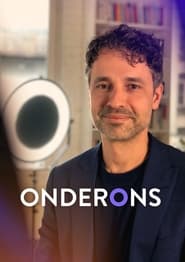Talk TV Series - Page 179
-
Play with Nubsib
2020
Play with Nubsib
2020
Join Kao, Up, and other cast members from Lovely Writer in a series of mini-games and talks! -
De Toots Sessies
2020
De Toots Sessies
2020
-
Darts Stories
2021
Darts Stories
2021
The Sport 1 magazine “Darts Stories” reports on several darts world championships and introduces special darts players. -
Resenha ESPN
2015
Resenha ESPN
2015
-
더 릴리전
2024
-
Andrew Denton: Interview
2018
Andrew Denton makes his long-awaited return. Australia's shortest (some would say greatest) interviewer will sit opposite a range of fascinating people and tries to find out what makes them tick. -
18-19-Musik
1978
18-19-Musik
1978
-
Die Freitagsrunde
1989
Die Freitagsrunde
1989
-
Har Ghadi Mauj
2021
Har Ghadi Mauj
2021
Gujarati actor Ojas Rawal has begun a chat show for Oho Gujarati where he interviews celebrities every week. The first celeb to join the show was RJ-turned-actress Devaki. -
Bloomberg Technology
0000
Bloomberg Technology
0000
star 6The only daily news program focused exclusively on technology, innovation and the future of business from San Francisco. -
Le 20H de Ruquier
2023
Le 20H de Ruquier
2023
-
What's Your Ailment?!
2019
Join host and comedian Maria Bamford as she talks candidly with fellow comedians and artists about their experiences with mental health, past or present. -
'nissa
2016
'nissa
2016
-
OnderOns
2022
OnderOns
2022
-
대담 - 문재인의 5년
2022
대담 - 문재인의 5년
2022
-
众创英雄汇
2019
众创英雄汇
2019
-
Nashville PQ
2022
Nashville PQ
2022














